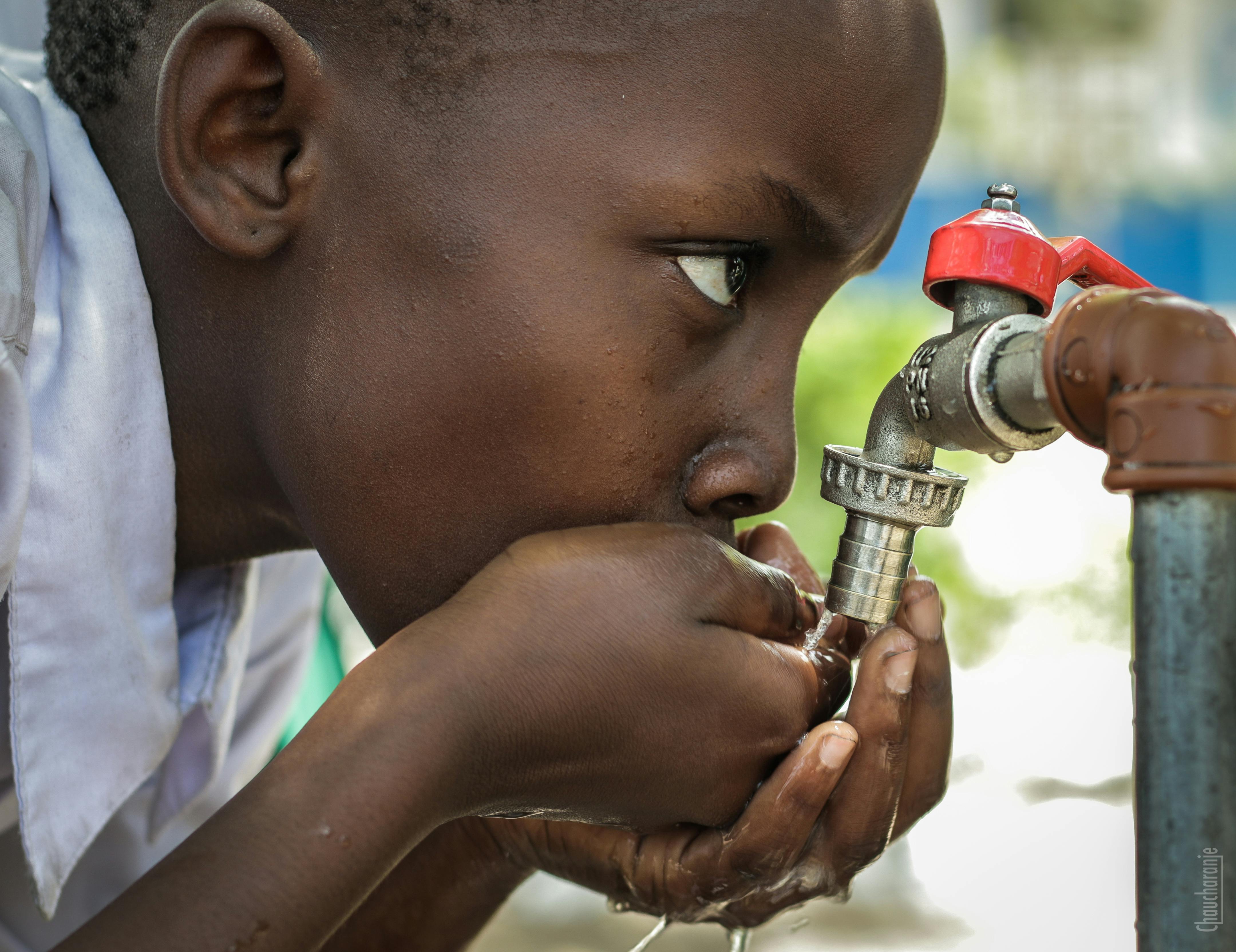Water is an essential part of everyday life. It is used for drinking, bathing, washing, cooking and more. However, not all water is the same. Distilled water and drinking water both come from the same source, but they are processed differently and have distinct differences in composition. In this article we will take a look at what sets them apart from each other and what makes them unique.Distilled water is water that has been boiled and evaporated away from impurities and then condensed back into a liquid. The process of distillation removes all minerals, salts, and other impurities from the water, making it 100% pure. Distilled water is often used in laboratories for scientific experiments and for medical purposes, as it is sterile and free of any contaminants.
What Is Drinking Water?
Drinking water is water that is safe to consume and does not contain any infectious organisms or other contaminants. It is often obtained from public water systems, groundwater sources, or other sources that are approved for drinking. The quality of drinking water varies depending on the source and how it is treated. In some cases, it may need to be treated before it can be consumed safely. Drinking water must meet certain safety standards in order to be considered safe for consumption. These standards are set by the Environmental Protection Agency (EPA) and other regulatory bodies.
In order to ensure that drinking water is safe, local governments typically test the water regularly for various contaminants such as bacteria, lead, pesticides, and more. If any of these contaminants are found in the water, appropriate action must be taken to remove them before the water can be declared safe for consumption. The EPA also sets limits on how much of certain contaminants can be present in drinking water before it must be treated or replaced with a safer source.
There are many different types of treatments that can be used to make drinking water safe. These treatments can include filtration, disinfection, reverse osmosis, and more. Depending on the type of treatment used and the type of contaminant present in the source water, different treatments may need to be used in combination with one another in order to provide a safe product.
Drinking water is essential for human health and should always come from a reliable source that is tested regularly for safety. By following local regulations regarding drinking water quality and using appropriate treatment techniques when necessary, individuals can ensure that their drinking water is safe for consumption.
Sources of Drinking Water
Water is the most important natural resource for life on Earth and it is essential for all living organisms. Access to clean, safe drinking water is a basic human right and one of the most important public health issues. There are many sources of drinking water, including rivers, lakes, streams, wells, and groundwater.
Rivers are large bodies of flowing water that can be used as a source of drinking water when treated properly. Rivers can be contaminated with bacteria, viruses, and other pollutants from industrial and agricultural runoff or sewage discharges. Water must be tested regularly to ensure it meets safety standards before it can be used as a source of drinking water.
Lakes are bodies of freshwater that can also be used as a source of drinking water when treated appropriately. Lakes may contain higher levels of contaminants than rivers due to their larger surface areas and slower flow rates. It is also important to regularly test lake water for contamination before using it as a source of drinking water.
Streams are smaller bodies of flowing water that usually originate from springs or other sources high in the mountains or hillsides. Streams are often used as a source of drinking water because they tend to have fewer contaminants than rivers or lakes due to their smaller size and faster flow rate. However, they should still be tested regularly for contamination before being used as a source of drinking water.
Wells are holes dug into the ground that tap into underground aquifers that contain groundwater which can then be pumped up for use as a source of drinking water. Groundwater typically contains fewer contaminants than surface waters such as rivers or lakes but should still be tested regularly for safety before being used as a source of drinking water.
Overall, there are many sources available for obtaining safe drinking water but it is important to ensure that any potential sources are tested regularly for contamination before use in order to protect public health and safety.
Advantages of Distilled Water
Distilled water is a type of purified water that has been through a process of distillation. This process involves boiling the water and collecting the steam, which is then cooled and condensed back into liquid form. Distilled water has many advantages over other types of drinking water, making it an ideal choice for those looking for a healthier alternative. Some of the main benefits include:
1) It is free from contaminants: Distilled water is free from harmful chemicals and pollutants that can be present in tap and well water. This makes it ideal for use in drinking, cooking and even bathing, as you can be sure that it will not contain any harmful substances.
2) It has a neutral pH balance: Distilled water has a neutral pH balance, meaning it is not acidic or alkaline. This makes it much less damaging to tooth enamel than other types of drinking water and can help to prevent cavities and tooth decay.
3) It helps to detoxify the body: Drinking distilled water can help to flush out toxins from the body, as well as aiding digestion. This can help you to feel more energized throughout the day.
4) It does not contain minerals: Unlike some other types of drinking water, distilled water does not contain minerals such as calcium or magnesium. This makes it an ideal choice for those looking to reduce their mineral intake or who are on special diets.
5) It is affordable: Distilled water is relatively inexpensive compared to other types of purified drinking waters. This makes it an excellent choice for those looking for an affordable way to stay hydrated without compromising on quality.
Advantages of Distilled Water
Distilled water has many advantages. It is pure and free of contaminants, making it safe to drink. Distilled water also does not contain any minerals, so it is ideal for those who are looking to avoid dietary mineral intake. It is also great for those who are on a low-sodium diet, as it contains no minerals or sodium. Furthermore, distilled water has a neutral pH level, so it can be used in a variety of applications without altering the pH balance of the solution. Additionally, distilled water has a much longer shelf life than regular tap water as there are no contaminants that can cause it to spoil quickly.
Disadvantages of Distilled Water
The main disadvantage of distilled water is that it lacks essential minerals and electrolytes that our bodies need in order to function properly. Therefore, people who drink only distilled water need to supplement their diet with vitamins and minerals in order to obtain the necessary nutrients for good health. Additionally, since distilled water does not contain any minerals or other substances that give tap water its distinct flavor, some people find the taste of distilled water unpleasant. Furthermore, using distilled water on plants can cause them to become nutrient deficient because they rely on the mineral content in regular tap or spring water for proper growth and development.

Advantages of Drinking Water
Drinking water is one of the most important and beneficial habits for our body. It has numerous advantages for our physical and mental health. Water is essential for life, and it helps to flush out toxins from the body and aids in digestion. Drinking adequate amounts of water can help prevent dehydration, headaches, fatigue, constipation and other ailments. It also helps to regulate body temperature, improve circulation and boost energy levels. Water helps to lubricate the joints and organs in the body and keep them healthy. Additionally, drinking plenty of water can help to keep skin looking clear, supple and youthful as it keeps skin hydrated. Drinking water can also help with weight loss by suppressing appetite and promoting calorie burning. Lastly, it is essential for proper brain function as it helps to improve concentration, alertness and cognitive performance.
In conclusion, drinking enough water each day has many benefits for physical health, mental health and overall well-being. It is important to ensure that we drink enough fluids each day to stay hydrated and maintain optimum health.
Advantages of Drinking Water
Drinking water is essential to our health. It helps us to replenish fluids lost through perspiration, and it flushes toxins out of our systems. Water has many benefits, including helping to regulate body temperature and aiding in digestion. It also helps to keep our skin hydrated and healthy, and can reduce the risk of certain diseases such as kidney stones. Drinking plenty of water can also help with weight loss by curbing hunger pangs and preventing overeating.
Disadvantages of Drinking Water
Drinking too much water can be dangerous if consumed in excess. Too much water can dilute important electrolytes in the body, which can lead to medical issues such as hyponatremia or even death in extreme cases. Additionally, drinking too much water can put a strain on the kidneys, which are responsible for filtering out toxins from the body. Staying hydrated is important, but it’s best to drink no more than eight glasses of water per day unless instructed by a doctor or nutritionist.
Nutrients in Distilled and Drinking Water
Distilled water and drinking water are two different types of water which provide different nutrients to the body. Distilled water is created by boiling water and then condensing the steam back into liquid form. This process removes minerals, salts, and other impurities from the water. As a result, distilled water contains no naturally occurring minerals or other nutrients.
On the other hand, drinking water contains minerals such as calcium, potassium, magnesium, iron and zinc that are naturally present in groundwater sources such as springs and rivers. Most municipal drinking water is also treated with chlorine to kill bacteria and other microorganisms which can cause disease. Therefore, drinking water generally contains trace amounts of chlorine as well as fluoride which helps to strengthen teeth when consumed in moderation.
Overall, it is important to note that both distilled and drinking water can provide health benefits depending on the situation. For example, if a person has certain medical conditions or allergies that make it difficult for them to consume certain minerals then distilled water might be a better choice for them than drinking water. However, regular consumption of drinking water with its naturally occurring minerals has been linked to improved overall health such as increased energy levels and better digestion.
Therefore, it is important for individuals to consider their own specific needs when deciding which type of water is right for them. If you have any questions about what type of water would be best for you then consult with your doctor or nutritionist for more information before making any changes in your lifestyle or diet.

Conclusion
In conclusion, the differences between distilled water and drinking water are significant. Distilled water is purer than drinking water due to the distillation process that removes impurities. However, distilled water lacks minerals and electrolytes, which are essential for hydration and health. Drinking water is generally considered safe to drink and contains these minerals and electrolytes. Consumers should be aware of their options when selecting a type of water for drinking or other uses.
Ultimately, the choice between these two types of waters will depend on individual needs and preferences. It is important to understand the source of the water and its treatment methods in order to make an informed decision about which type of water is best for different applications.

